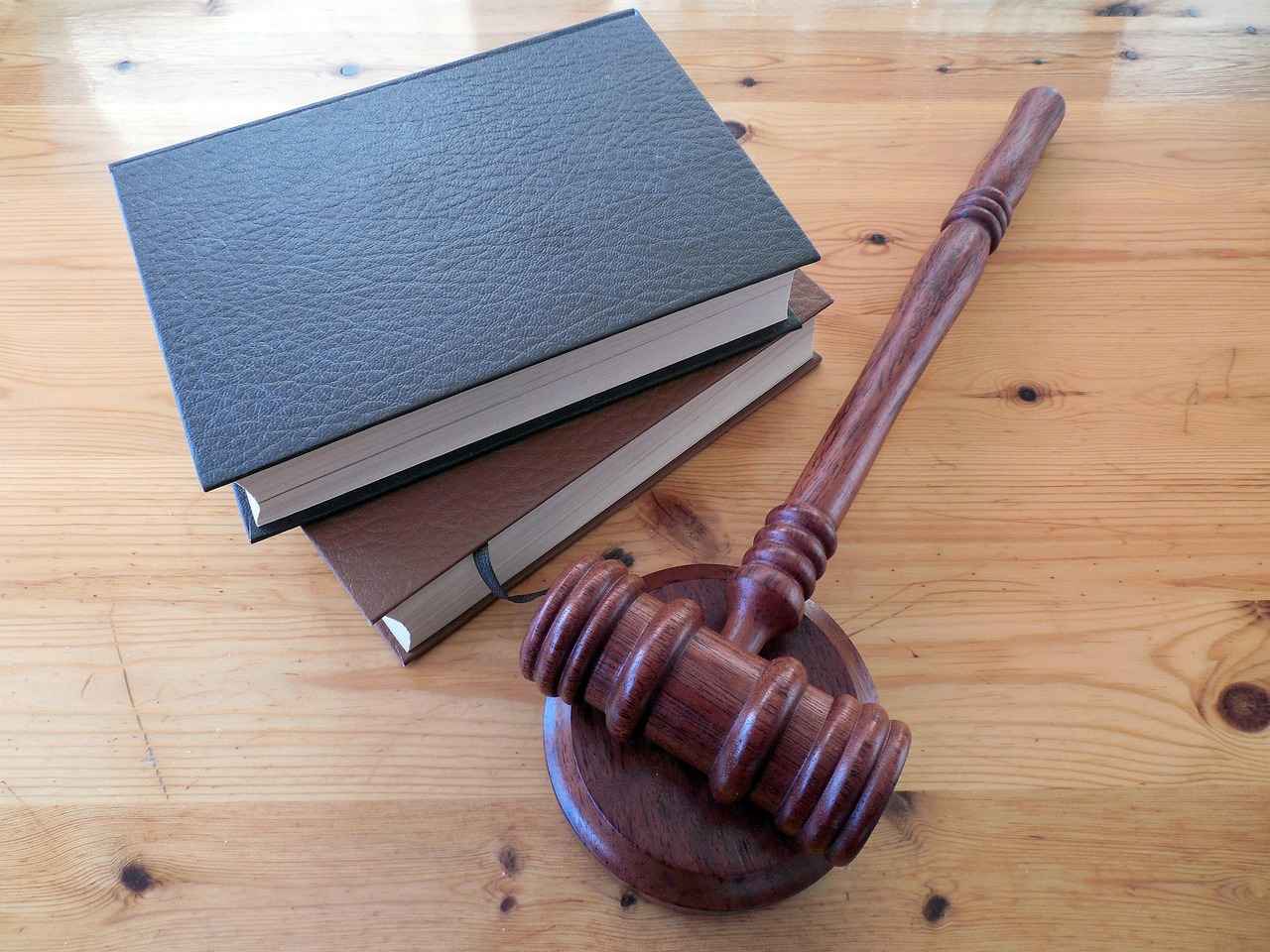This article provides valuable insights into the most prevalent legal cases in the United States, while also offering expert guidance on how to select qualified attorneys in major metropolitan areas such as Chicago. Understanding the various types of legal cases is crucial for individuals seeking legal representation, as it can significantly impact the outcome of their cases.
Understanding Common Legal Cases
- Personal Injury: These cases often arise from accidents or negligence, necessitating experienced attorneys who specialize in personal injury law to ensure adequate representation and compensation.
- Medical Malpractice: Involves negligence by healthcare professionals. It is essential to find a lawyer with a robust background in medical law for successful claims.
- Breach of Contract: Occurs when one party fails to fulfill their obligations. Attorneys specializing in contract law can help clients navigate disputes and seek remedies.
- Property Disputes: Involves ownership, boundaries, or lease agreements. Legal representation is vital to resolve these conflicts effectively and protect property rights.
- Landlord-Tenant Disputes: Common issues include eviction and repairs. A knowledgeable attorney can help tenants understand their rights and landlords enforce agreements.
- Defamation: Cases involving libel and slander require attorneys skilled in media law to assist clients in proving harm to their reputation.
- Employment Disputes: Encompasses wrongful termination and discrimination. Legal counsel is essential for navigating complex employment laws.
- Product Liability: Involves injuries caused by defective products. Attorneys experienced in consumer protection laws can help victims seek compensation.
- Wrongful Death Claims: Arise when negligence leads to death. Families need compassionate attorneys who understand the complexities involved.
- Class Action Lawsuits: Allow groups to sue collectively. Individuals should seek attorneys experienced in large-scale litigation.
- Assault and Battery: Involves personal injury and criminal charges, requiring specialized criminal defense attorneys.
- Drug Offenses: Range from possession to trafficking. Individuals facing charges should find a defense attorney knowledgeable in drug laws.
- Theft and Burglary: Serious charges requiring experienced criminal defense attorneys to navigate the legal system.
- Fraud and Embezzlement: Cases require skilled legal representation to defend against severe penalties.
- Murder and Homicide: Among the most serious charges, individuals must retain attorneys with extensive criminal law experience.
- Divorce and Family Law: Involves asset division and custody issues. Family law attorneys can guide clients through emotional and legal challenges.
- Cybercrime: Increasingly relevant in today’s digital world, requiring attorneys familiar with technology and law.
- White Collar Crime: Involves non-violent crimes for financial gain, necessitating attorneys with specific expertise.
- Immigration Cases: Complex legal matters requiring attorneys who specialize in immigration law.
- Bankruptcy: Involves financial distress and requires knowledgeable attorneys to navigate the process.
- Intellectual Property: Patent and trademark disputes require specialized legal knowledge to protect innovations.
- Civil Rights Violations: Require attorneys who understand constitutional law and civil liberties.
Finding Qualified Attorneys
When searching for a lawyer, consider the following proven methods:
- Referrals: Ask friends or family for recommendations.
- Online Reviews: Check platforms like Avvo and Martindale-Hubbell for ratings and reviews.
- Legal Directories: Use resources like the American Bar Association to find qualified attorneys.
Credentials to Look For
When evaluating potential attorneys, check for:
- Relevant experience in the specific area of law.
- Specialization and state bar membership.
- Certifications indicating expertise and reliability.
Red Flags to Avoid
Be cautious of attorneys who:
- Guarantee outcomes.
- Lack transparency in fees.
- Exhibit poor communication skills.
Trustworthy lawyers should be open and honest about their strategies and costs. By following these guidelines, individuals can find the most qualified and trustworthy attorneys for their legal needs in Chicago and beyond.

Understanding Personal Injury Cases
Personal injury cases are a prevalent aspect of the legal landscape in the United States, typically arising from accidents or negligence. These incidents can include car accidents, slip and falls, workplace injuries, and more. When individuals suffer harm due to the actions (or inactions) of others, they often seek compensation for their injuries, medical expenses, lost wages, and emotional distress. To navigate the complexities of personal injury law, it is crucial to seek out experienced attorneys who specialize in this field.
In many instances, personal injury claims can be complicated, involving various legal principles and the need for thorough documentation of the injuries sustained. Victims must demonstrate that the other party was at fault, which often requires gathering evidence, witness testimonies, and expert opinions. Therefore, having a skilled attorney can significantly impact the outcome of a case.
When searching for a personal injury lawyer, consider the following key factors:
- Experience: Look for attorneys who have a proven track record in handling personal injury cases. Their experience can provide valuable insights into the legal process and potential challenges.
- Specialization: Ensure that the attorney specializes in personal injury law. This specialization is essential for understanding the nuances of the law and effectively representing your interests.
- Reputation: Research online reviews and testimonials from previous clients. A lawyer’s reputation can give you an idea of their reliability and effectiveness in handling cases.
- Communication: Choose an attorney who communicates clearly and is responsive to your inquiries. Good communication is vital for a successful attorney-client relationship.
- Fee Structure: Understand the attorney’s fee structure. Many personal injury lawyers work on a contingency fee basis, meaning they only get paid if you win your case. This arrangement can alleviate the financial burden during the legal process.
In addition to these factors, potential clients should be aware of red flags when selecting a personal injury attorney:
- Guarantees of Outcomes: Be cautious of any attorney who guarantees a specific outcome. Legal cases are unpredictable, and no lawyer can assure a win.
- Lack of Transparency: If an attorney is vague about their fees or the legal process, this could indicate a lack of professionalism.
- Poor Communication: An attorney who is difficult to reach or does not respond promptly to your questions may not prioritize your case.
Finding the right personal injury attorney can make a significant difference in the resolution of your case. In metropolitan areas such as Chicago, it is essential to utilize various resources to identify qualified lawyers. Consider using platforms like Avvo, Martindale-Hubbell, and the American Bar Association to search for attorneys with the appropriate credentials and experience.
In conclusion, personal injury cases require knowledgeable legal representation to navigate the complexities of the law and ensure that victims receive the compensation they deserve. By taking the time to research and select the right attorney, individuals can significantly improve their chances of a favorable outcome in their personal injury claims.

Navigating Medical Malpractice Claims
Medical malpractice is a serious legal issue that arises when healthcare professionals fail to provide the standard of care expected in their field, resulting in harm to patients. This negligence can take many forms, including misdiagnosis, surgical errors, medication mistakes, and inadequate follow-up care. As a result, victims of medical malpractice often face significant physical, emotional, and financial burdens.
When pursuing a medical malpractice claim, it is essential to find a lawyer who specializes in medical law and has a proven track record in handling such cases. Here are some key considerations to keep in mind:
- Experience and Specialization: Look for attorneys who have extensive experience specifically in medical malpractice cases. They should be familiar with the complex medical standards that govern these claims and have a history of successful outcomes.
- Understanding Medical Standards: A qualified lawyer should be able to interpret medical records and understand the nuances of medical practices. This expertise is crucial for establishing that the healthcare provider acted negligently.
- Initial Consultation: Many attorneys offer free initial consultations. Use this opportunity to assess their knowledge and approach to your case. Ask about their past cases and success rates.
- Reputation and Reviews: Research potential lawyers through online reviews and testimonials from previous clients. A lawyer with a strong reputation in the community is more likely to provide reliable representation.
- Professional Associations: Membership in professional organizations such as the American Association for Justice (AAJ) can indicate a lawyer’s commitment to their field and ongoing education.
Additionally, it is important to be aware of red flags when selecting a medical malpractice attorney:
- Guarantees of Outcomes: Be cautious of any attorney who guarantees a specific outcome. Legal cases, especially those involving medical malpractice, can be unpredictable.
- Lack of Transparency: Ensure that the attorney is clear about their fees and any potential costs associated with your case. Hidden fees can lead to unexpected financial burdens.
- Poor Communication: A good attorney should be responsive and communicative. If they are difficult to reach or do not provide clear answers to your questions, consider it a warning sign.
In conclusion, navigating medical malpractice claims requires a careful and informed approach. By focusing on finding a qualified attorney with the right expertise, individuals can improve their chances of receiving the compensation they deserve for their injuries and suffering. Remember, the right legal representation can make all the difference in the outcome of your case.

Addressing Breach of Contract Issues
A breach of contract occurs when one party fails to meet their obligations as outlined in a legally binding agreement. This can manifest in various forms, such as failing to deliver goods or services, not making payments, or not adhering to stipulated timelines. In these situations, the affected party may seek legal remedies to enforce the contract or recover damages.
Understanding the complexities of breach of contract cases is essential. Legal professionals specializing in contract law can provide invaluable assistance in navigating these disputes. They can help clients assess the situation, determine if a breach has indeed occurred, and outline the best course of action. Here are some key considerations when dealing with breach of contract issues:
- Identify the Breach: It is crucial to clearly identify how the other party has failed to meet their obligations. Documenting specific instances of non-compliance can strengthen your case.
- Gather Evidence: Collect all relevant documents, including the original contract, communications, and any other evidence that supports your claim of breach.
- Seek Legal Counsel: Engage an attorney who specializes in contract law. Their expertise will be instrumental in evaluating your case and advising you on potential remedies.
Attorneys can assist clients in various ways, including:
- Negotiation: Often, disputes can be resolved through negotiation, avoiding lengthy litigation. A skilled attorney can help facilitate discussions and reach a settlement.
- Litigation: If negotiations fail, attorneys can represent clients in court, advocating for their rights and seeking appropriate remedies, such as damages or specific performance.
- Understanding Remedies: Legal counsel can explain the different types of remedies available, including compensatory damages, consequential damages, and equitable remedies.
When searching for an attorney to handle breach of contract cases, consider the following:
- Experience: Look for attorneys with a proven track record in handling breach of contract cases. Their experience can significantly influence the outcome.
- Specialization: Ensure the attorney specializes in contract law, as this will ensure they are well-versed in the nuances of your case.
- Reputation: Research online reviews and testimonials to gauge the attorney’s reputation in the legal community.
It is also essential to be aware of red flags when hiring an attorney:
- Guarantees of Success: Be cautious of any attorney who guarantees a specific outcome, as this is often unrealistic and can indicate a lack of integrity.
- Poor Communication: An attorney should be responsive and communicative. If they are hard to reach or do not provide clear answers, consider this a warning sign.
- Unclear Fee Structures: Always clarify the attorney’s fee structure upfront. Be wary of those who are vague about costs, as this can lead to unexpected expenses later on.
In summary, addressing breach of contract issues requires a clear understanding of the situation and the legal avenues available for resolution. By seeking qualified legal counsel, individuals can effectively navigate these disputes and work towards a favorable outcome.

Resolving Property Disputes
Property disputes are a common legal issue that can arise in various forms, including disagreements over ownership, boundaries, and lease agreements. These conflicts can lead to significant emotional stress and financial implications, making it essential for individuals to seek legal representation to navigate the complexities of property law effectively.
One of the most prevalent types of property disputes involves ownership issues. This can occur when multiple parties claim rights to the same property or when there is a question regarding the validity of a deed. In such cases, having a knowledgeable attorney can help clarify ownership rights and facilitate a resolution.
Boundary disputes are another common issue, often arising when property lines are unclear or contested. These disputes can escalate quickly, leading to litigation if not addressed promptly. An experienced attorney can assist in resolving these matters through negotiation or, if necessary, legal action.
Lease agreements can also be a source of conflict, particularly in landlord-tenant relationships. Issues may arise regarding rent payments, maintenance responsibilities, or eviction processes. Legal representation is crucial for both landlords and tenants to ensure their rights are protected and to facilitate a fair resolution.
To effectively resolve property disputes, individuals should consider the following steps:
- Consult a Specialized Attorney: Look for attorneys who specialize in property law, as they will have the expertise required to handle your specific case.
- Gather Documentation: Collect all relevant documents, such as deeds, lease agreements, and correspondence, to present a clear picture of the dispute.
- Consider Mediation: Before pursuing litigation, consider mediation as a less adversarial way to resolve disputes. Many attorneys can facilitate this process.
- Understand Your Rights: Familiarize yourself with local property laws to better understand your position and the potential outcomes.
When searching for a qualified attorney in major metropolitan areas like Chicago, it is essential to utilize various resources:
- Online Legal Directories: Websites such as Avvo and Martindale-Hubbell provide ratings and reviews of attorneys based on their expertise and client feedback.
- Referrals: Ask friends, family, or colleagues for recommendations. Personal experiences can guide you to trustworthy legal professionals.
- Consult Local Bar Associations: Many bar associations offer referral services that can connect you with qualified attorneys in your area.
When evaluating potential attorneys, look for the following credentials:
- Experience: Ensure the attorney has substantial experience in handling property disputes.
- Specialization: Verify that they specialize in property law or related fields.
- State Bar Membership: Confirm their membership in the state bar and check for any disciplinary actions.
Be cautious of red flags when hiring an attorney:
- Guarantees: Avoid attorneys who guarantee specific outcomes, as legal matters can be unpredictable.
- Lack of Transparency: Be wary of those who are not upfront about fees or potential costs associated with your case.
- Poor Communication: If an attorney is difficult to reach or does not communicate clearly, it may indicate a lack of professionalism.
In conclusion, resolving property disputes requires careful consideration and the right legal support. By following these guidelines and seeking experienced legal representation, individuals can protect their property rights and work towards a favorable resolution.

Landlord-Tenant Disputes Explained
Landlord-tenant disputes are a common aspect of the rental market, often involving issues such as eviction, repairs, and lease agreements. These disputes can arise due to various reasons, including misunderstandings about lease terms, disagreements over property maintenance, or failure to pay rent. Understanding the legal landscape surrounding these disputes is crucial for both tenants and landlords.
For tenants, it is essential to know their rights. Many states have laws that protect tenants from illegal eviction practices and require landlords to maintain habitable living conditions. A knowledgeable attorney can help tenants navigate these laws, ensuring they are treated fairly and that their rights are upheld. This legal guidance can be invaluable when facing eviction, as an attorney can help tenants understand the eviction process, represent them in court, and potentially negotiate with landlords for a favorable outcome.
On the other hand, landlords also benefit from legal expertise. A qualified attorney can assist landlords in drafting lease agreements that comply with local laws and help enforce these agreements if tenants fail to uphold their end of the bargain. This includes addressing issues such as late payments, property damage, and lease violations. Furthermore, an attorney can guide landlords through the eviction process, ensuring that all legal procedures are followed to avoid potential lawsuits.
When dealing with landlord-tenant disputes, both parties should consider the following steps:
- Document Everything: Keep detailed records of all communications, repairs requested, and payments made.
- Know Your Rights: Familiarize yourself with local tenant and landlord laws to understand your rights and obligations.
- Seek Legal Advice: Consult with an attorney who specializes in landlord-tenant law for tailored guidance.
- Mediation: Consider mediation as a way to resolve disputes amicably without going to court.
Finding the right attorney for landlord-tenant disputes can significantly impact the resolution of the issue. Here are some proven methods to locate qualified legal professionals:
- Referrals: Ask friends, family, or colleagues for recommendations based on their experiences.
- Online Reviews: Utilize platforms like Avvo, Martindale-Hubbell, or Yelp to read reviews and ratings of attorneys.
- Legal Directories: Check legal directories for attorneys specializing in landlord-tenant law in your area.
When evaluating potential attorneys, look for the following credentials:
- Experience: Ensure the attorney has substantial experience handling landlord-tenant disputes.
- Specialization: Verify that they specialize in real estate or landlord-tenant law.
- State Bar Membership: Check if the attorney is a member of the state bar association and in good standing.
Be cautious of red flags when selecting an attorney:
- Guarantees: Avoid attorneys who promise guaranteed outcomes, as legal results can be unpredictable.
- Transparency: Ensure that the attorney is clear about their fees and billing practices upfront.
- Poor Communication: Trust your instincts; if an attorney is unresponsive or difficult to reach, it may be a sign of future issues.
In conclusion, landlord-tenant disputes can be complex and emotionally charged. Having the right legal representation can make a significant difference in the outcome of these disputes. Both tenants and landlords should prioritize understanding their rights and responsibilities while seeking out qualified attorneys who can provide expert guidance tailored to their specific situations.

Understanding Defamation Law
Defamation law is a critical area of legal practice that deals with the protection of an individual’s reputation. It encompasses two primary forms: libel, which refers to written defamation, and slander, which pertains to spoken defamation. Given the complexities involved in proving defamation, it is essential to engage attorneys who possess a deep understanding of media law and the nuances of reputation management.
In defamation cases, the burden of proof lies with the plaintiff, who must demonstrate that the statements made were false, damaging, and made with a certain degree of fault. This often requires a skilled attorney who can navigate the intricacies of both state and federal laws regarding free speech and defamation. An experienced lawyer will help clients gather the necessary evidence, such as witness testimonies and expert opinions, to substantiate their claims.
Additionally, attorneys specializing in defamation law can assist clients in understanding the potential damages they may seek. Damages in defamation cases can be categorized into two main types: compensatory damages, which cover actual losses incurred, and punitive damages, which are intended to punish the defendant for particularly egregious behavior. A knowledgeable lawyer will be able to articulate the value of these damages in court effectively.
When searching for a qualified attorney to handle a defamation case, consider the following proven methods:
- Referrals: Ask friends, family, or colleagues for recommendations based on their experiences.
- Online Reviews: Utilize platforms like Avvo or Martindale-Hubbell to read reviews and ratings of attorneys.
- Legal Directories: Check directories provided by local bar associations or legal organizations.
In major cities like Chicago, New York City, and Los Angeles, it is also beneficial to look for attorneys who have a proven track record in handling media-related cases. This can include past success in litigating against major media outlets or experience in high-profile defamation suits.
When evaluating potential attorneys, pay attention to the following credentials:
- Specialization: Ensure the lawyer specializes in defamation and media law.
- Experience: Look for attorneys with substantial experience in handling defamation cases.
- Bar Membership: Confirm that the attorney is a member of the state bar association and in good standing.
However, be cautious of red flags that may indicate a less-than-reputable lawyer:
- Guarantees: Be wary of any attorney who guarantees a specific outcome in your case.
- Lack of Transparency: Avoid lawyers who are unclear about their fees or the legal process.
- Poor Communication: A trustworthy attorney should maintain open lines of communication and keep clients informed throughout the process.
In conclusion, navigating defamation law requires not only a competent attorney but also one who understands the stakes involved in protecting your reputation. By following the guidelines outlined above, individuals can find qualified legal representation to effectively address their defamation issues.

Employment Disputes: What to Know
Employment disputes are a significant area of concern for many workers in the United States. These disputes can arise from various issues, including wrongful termination, discrimination, and workplace harassment. Understanding these issues is crucial for employees to protect their rights and seek appropriate remedies.
When an employee believes they have been wrongfully terminated, it is essential to gather all relevant documentation, such as emails, performance reviews, and any correspondence related to the termination. This evidence is vital for building a strong case. Similarly, discrimination claims can stem from differences in treatment based on race, gender, age, or disability. Employees should document instances of discriminatory behavior and seek legal counsel to understand their rights under federal and state laws.
Workplace harassment, whether sexual or based on other protected characteristics, can create a hostile work environment. Employees experiencing harassment should report the behavior to their employer and document incidents thoroughly. Legal counsel is essential in these situations, as they can help navigate the complexities of employment law and ensure that the victim’s rights are upheld.
Engaging a knowledgeable attorney who specializes in employment law is vital for navigating these complex issues. These attorneys can provide guidance on the appropriate steps to take and represent the employee in negotiations or legal proceedings. When seeking legal representation, consider the following:
- Experience: Look for attorneys with a proven track record in handling employment disputes.
- Specialization: Ensure the attorney specializes in employment law to benefit from their focused expertise.
- Client Reviews: Check online reviews and testimonials to gauge past clients’ experiences with the attorney.
- Consultations: Many attorneys offer free initial consultations, which can be an excellent opportunity to assess their approach and expertise.
Additionally, platforms like Avvo, Martindale-Hubbell, and the American Bar Association provide valuable resources for finding qualified attorneys. These platforms offer ratings, reviews, and detailed profiles that can help individuals make informed decisions.
While searching for legal counsel, it is crucial to be aware of potential red flags. Avoid attorneys who:
- Guarantee Outcomes: No attorney can guarantee the result of a case, as many factors are beyond their control.
- Lack Transparency: Be wary of attorneys who are not clear about their fee structures or who pressure you into making quick decisions.
- Have Poor Communication: Effective communication is vital in legal matters. An attorney who does not respond promptly or clearly may not prioritize your case.
In conclusion, employment disputes can be complex and emotionally charged. Seeking legal counsel is essential for protecting your rights and navigating the legal landscape. By understanding the types of disputes, gathering necessary documentation, and choosing the right attorney, employees can effectively address their concerns and seek justice.

Product Liability Cases
Product liability cases are a critical area of law that addresses injuries and damages caused by defective products. These cases can arise from various issues, including design flaws, manufacturing defects, or inadequate warnings and instructions. When consumers are harmed by such products, they may be entitled to seek compensation from the manufacturers or sellers responsible for the product’s safety.
Understanding the complexities of product liability law is essential for victims seeking justice. The legal framework governing these cases can be intricate, involving various state and federal consumer protection laws. Therefore, it is imperative to find an attorney who specializes in consumer protection and product liability law. Such attorneys possess the necessary expertise to navigate the legal landscape and advocate effectively for their clients.
When searching for a qualified attorney in this field, consider the following strategies:
- Research Experience: Look for attorneys who have a proven track record in handling product liability cases. Their experience can significantly influence the outcome of your case.
- Seek Referrals: Ask friends, family, or colleagues for recommendations. Personal experiences can guide you to trustworthy attorneys.
- Consult Legal Directories: Utilize platforms such as Avvo or Martindale-Hubbell to find attorneys with specific expertise in product liability. These directories provide ratings, reviews, and professional backgrounds.
Additionally, when evaluating potential attorneys, pay close attention to their credentials:
- Specialization: Ensure the attorney specializes in product liability and has experience with cases similar to yours.
- Bar Membership: Verify that the attorney is in good standing with the state bar association, which indicates their legitimacy and adherence to ethical standards.
- Trial Experience: A lawyer with trial experience can be invaluable, especially if your case goes to court.
While searching for the right attorney, be cautious of red flags that may indicate a lack of professionalism:
- Guarantees of Outcomes: Be wary of any attorney who promises specific results. Legal outcomes can be unpredictable, and no attorney can guarantee success.
- Poor Communication: If an attorney is unresponsive or fails to communicate clearly, it may be a sign of potential issues in the attorney-client relationship.
- Lack of Transparency: Attorneys should be upfront about their fees and billing practices. Hidden costs can lead to disputes later on.
In conclusion, navigating product liability cases requires a knowledgeable attorney who can guide victims through the complexities of the legal system. By conducting thorough research, seeking referrals, and evaluating credentials while remaining vigilant for red flags, individuals can find the right legal representation to help them seek the compensation they deserve.

Wrongful Death Claims
represent a deeply emotional and complex area of law, arising when an individual loses their life due to the negligence or wrongful actions of another party. These cases not only involve legal intricacies but also the profound grief and trauma experienced by the surviving family members. It is crucial for families facing such a devastating loss to seek out compassionate attorneys who can guide them through both the emotional and legal challenges that accompany wrongful death claims.
In the aftermath of a wrongful death, families often grapple with a myriad of questions, including how to seek justice and compensation for their loss. An experienced attorney specializing in wrongful death cases can provide essential support by helping families understand their legal rights and the potential avenues for recovery. This may include compensation for lost wages, medical expenses, funeral costs, and emotional suffering.
When searching for a qualified attorney to handle a wrongful death claim, families should consider several key factors:
- Experience: Look for attorneys who have a proven track record in handling wrongful death cases. Their experience can significantly impact the outcome of the claim.
- Compassion: It is vital to choose an attorney who demonstrates empathy and understanding of the emotional turmoil that families endure during such challenging times.
- Reputation: Research the attorney’s reputation within the legal community and among past clients. Online reviews and testimonials can provide valuable insights.
- Communication: Select an attorney who communicates clearly and regularly, keeping you informed about the progress of your case.
Additionally, families should avoid potential red flags when hiring an attorney:
- Guarantees of Outcomes: Be wary of attorneys who promise specific results, as the unpredictability of legal cases makes this impossible.
- Lack of Transparency: Attorneys should be upfront about their fees and the costs associated with pursuing a wrongful death claim.
- Poor Communication: If an attorney is difficult to reach or slow to respond, it may indicate a lack of commitment to your case.
In metropolitan areas like Chicago, where wrongful death claims may involve complex legal battles, utilizing resources such as legal directories and referral services can help families find qualified attorneys. Platforms like Avvo and Martindale-Hubbell provide detailed information about attorneys’ backgrounds, including their areas of expertise and client reviews.
Furthermore, families should consider meeting with multiple attorneys before making a decision. Initial consultations can provide a sense of the attorney’s approach and whether they align with the family’s needs and expectations. During these meetings, families should ask about the attorney’s experience with wrongful death cases, their strategy for handling the claim, and how they plan to keep the family informed throughout the process.
Ultimately, the goal of pursuing a wrongful death claim is to seek justice for the loved one lost and to hold the responsible parties accountable for their actions. With the right legal representation, families can navigate the complexities of the legal system while focusing on healing and honoring the memory of their loved one.
In conclusion, wrongful death claims are not only legal matters but also deeply personal journeys for families. By choosing an attorney who combines legal expertise with compassion, families can ensure that their rights are protected and that they receive the support they need during this challenging time.

Class Action Lawsuits: An Overview
Class action lawsuits serve as a powerful legal tool that enables a group of individuals facing similar grievances to collectively pursue a claim against a defendant. This method not only streamlines the legal process but also enhances the chances of achieving a favorable outcome for all parties involved. In essence, a class action allows individuals to band together, sharing the costs and resources required to litigate against larger entities, such as corporations or government agencies, that may have caused harm through their actions or negligence.
When considering a class action lawsuit, it is crucial to understand the specific legal requirements and procedures involved. Class certification is a key step, where the court must approve the group as a class based on commonality, typicality, and adequacy of representation. Therefore, individuals should seek attorneys who are not only experienced in class action litigation but also possess a deep understanding of the relevant laws and regulations that govern such cases.
Finding the right attorney for a class action lawsuit requires careful consideration. Here are some practical steps to ensure you select a qualified legal representative:
- Research Experience: Look for attorneys who have a proven track record in handling class action lawsuits. Their experience can significantly influence the success of your case.
- Check Credentials: Verify the attorney’s education, bar admissions, and any relevant certifications. Membership in professional organizations, such as the American Association for Justice, can also be a good indicator of expertise.
- Read Reviews: Online platforms like Avvo and Martindale-Hubbell provide client reviews and ratings that can help gauge an attorney’s reputation and performance.
- Consult Multiple Attorneys: Schedule consultations with several lawyers to discuss your case. This will give you a sense of their approach and whether you feel comfortable working with them.
- Ask About Fees: Understand the attorney’s fee structure, especially in class action cases where costs can be shared among plaintiffs. Ensure transparency regarding any potential expenses.
It is also essential to be aware of red flags when selecting an attorney. Be cautious of lawyers who promise guaranteed outcomes, as no attorney can predict the result of a legal case with certainty. Additionally, avoid those who lack clear communication or transparency in their processes. A trustworthy attorney should be willing to explain their strategies and keep you informed throughout the litigation.
In conclusion, while class action lawsuits provide a vital avenue for collective justice, the choice of attorney can greatly impact the outcome. By conducting thorough research, seeking experienced legal counsel, and being vigilant about potential red flags, individuals can enhance their chances of achieving a successful resolution to their claims.

Assault and Battery Legal Matters
Assault and battery cases are serious legal matters that involve both personal injury and criminal charges. These cases typically arise when an individual intentionally causes harm to another person, either through physical violence or the threat of violence. Understanding the nuances of these offenses is crucial for both victims seeking justice and defendants needing robust legal representation.
In the realm of criminal law, assault is generally defined as an act that creates an apprehension of imminent harmful or offensive contact, while battery involves the actual physical act of causing harm. Both charges can lead to severe consequences, including fines, imprisonment, and a permanent criminal record. Therefore, it is essential for individuals accused of assault and battery to seek an attorney with a strong background in criminal defense.
Experienced attorneys specializing in criminal law can provide invaluable assistance in these cases. They are equipped to navigate the complexities of the legal system, gather evidence, and develop a strong defense strategy. Here are some key considerations for individuals involved in assault and battery cases:
- Legal Representation: Always consult with a qualified attorney who specializes in criminal defense. They can help you understand your rights and options.
- Evidence Gathering: A good attorney will know how to collect and present evidence, including witness testimonies and surveillance footage, to strengthen your case.
- Plea Bargaining: In many cases, attorneys can negotiate plea deals that may reduce charges or penalties, which can be beneficial for defendants.
- Understanding State Laws: Laws regarding assault and battery can vary significantly by state. An attorney familiar with local laws can provide tailored advice.
For victims, legal representation is equally important. A skilled attorney can help victims pursue civil claims for damages resulting from the assault or battery, including medical expenses, pain and suffering, and emotional distress. They can also assist in obtaining protective orders if necessary.
When searching for a qualified attorney in major metropolitan areas like Chicago, New York City, or Los Angeles, consider the following methods:
- Referrals: Ask friends, family, or colleagues for recommendations based on their past experiences with legal professionals.
- Online Reviews: Websites such as Avvo or Martindale-Hubbell provide ratings and reviews that can help you gauge an attorney’s reputation and expertise.
- Legal Directories: Utilize directories from the American Bar Association to find attorneys who specialize in criminal law.
Additionally, when evaluating potential attorneys, pay attention to their credentials. Look for:
- Experience in handling assault and battery cases.
- Membership in state and national legal organizations.
- Positive client testimonials and a track record of successful outcomes.
However, be wary of red flags, such as:
- Attorneys who guarantee specific outcomes or settlements.
- Lack of transparency regarding fees and costs.
- Poor communication or unresponsiveness to inquiries.
In conclusion, assault and battery cases demand careful consideration and expert legal representation. Whether you are a victim seeking justice or an accused individual needing defense, enlisting the help of a qualified attorney can significantly impact the outcome of your case. By following the guidelines outlined above, individuals can better navigate the complexities of the legal system and find trustworthy legal professionals to advocate on their behalf.

Understanding Drug Offenses
Drug offenses encompass a range of illegal activities related to controlled substances. These offenses can include possession, distribution, manufacturing, and trafficking. Each category carries varying degrees of severity and potential penalties. Individuals facing drug-related charges must understand the complexities of both state and federal drug laws to mount an effective defense.
When charged with a drug offense, it is crucial to seek the assistance of a qualified defense attorney who specializes in drug law. An experienced attorney will have a deep understanding of the legal landscape, including the nuances of sentencing guidelines and potential defenses available to the accused. For example, an attorney may identify issues such as illegal search and seizure or lack of probable cause that could lead to the dismissal of charges.
In addition to legal expertise, a knowledgeable attorney can guide individuals through the often overwhelming legal process. This includes explaining the potential consequences of a conviction, which can range from fines and probation to imprisonment. Furthermore, many states offer diversion programs for first-time offenders, which can lead to reduced penalties or dismissal of charges upon successful completion of the program.
When searching for a defense attorney, individuals should consider the following proven methods:
- Referrals: Ask friends, family, or colleagues for recommendations.
- Online Reviews: Utilize legal directories and review platforms to assess potential attorneys’ reputations.
- Initial Consultations: Many attorneys offer free consultations. Use this opportunity to gauge their experience and approach to your case.
Furthermore, it’s essential to verify the credentials of any attorney you consider:
- Check for specialization in drug law.
- Ensure they are a member of the state bar and in good standing.
- Look for relevant certifications or accolades in criminal defense.
However, be aware of red flags during your search:
- Attorneys who guarantee outcomes may be misleading.
- Lack of transparency in fees can be a warning sign.
- Poor communication skills or failure to return calls should raise concerns.
In conclusion, understanding drug offenses and the legal ramifications is vital for anyone facing such charges. By taking the time to find a qualified defense attorney who specializes in drug law, individuals can better navigate the complexities of their cases and work towards the best possible outcomes.

Theft and Burglary Cases
Theft and burglary are serious criminal charges that can have profound implications on an individual’s life. Defined broadly, theft involves taking someone else’s property with the intent to permanently deprive them of it, while burglary refers to entering a building unlawfully with the intent to commit a crime, typically theft. Both offenses can lead to severe legal consequences, including substantial fines and imprisonment.
Individuals facing such charges need to understand the gravity of their situation and the importance of having an experienced criminal defense attorney by their side. These legal professionals specialize in navigating the complexities of the criminal justice system and can help formulate a robust defense strategy tailored to the specifics of the case.
When engaging with a criminal defense attorney for theft or burglary cases, consider the following expert guidance:
- Experience in Criminal Law: Look for attorneys who have a proven track record in handling theft and burglary cases specifically. Their familiarity with local laws and court procedures can be invaluable.
- Client Testimonials: Seek out reviews and testimonials from past clients. Positive feedback can indicate an attorney’s effectiveness and reliability.
- Initial Consultation: Many attorneys offer free consultations. Use this opportunity to assess their communication style, approach to your case, and overall compatibility.
- Understanding of Plea Bargains: An experienced attorney will be knowledgeable about plea deals and can negotiate on your behalf to potentially reduce charges or penalties.
- Trial Experience: If your case goes to trial, having a lawyer with courtroom experience is crucial. Ask about their history of trial cases and outcomes.
Moreover, when searching for qualified legal representation, consider utilizing reputable platforms such as:
- Avvo: This platform provides lawyer ratings, reviews, and detailed profiles, allowing individuals to compare attorneys easily.
- Martindale-Hubbell: Known for its peer review ratings, this resource helps identify attorneys recognized for their ethical standards and legal ability.
- American Bar Association: The ABA offers a lawyer referral service that connects individuals with qualified attorneys in their area.
While searching for legal representation, keep an eye out for red flags that may indicate potential issues:
- Guarantees of Outcomes: Be wary of attorneys who promise specific results; the legal process is inherently uncertain.
- Lack of Transparency: An attorney should be upfront about their fees and the potential costs associated with your case.
- Poor Communication: If an attorney is difficult to reach or unresponsive, this may reflect their commitment to your case.
In summary, facing theft or burglary charges is daunting, but with the right legal support, individuals can navigate the complexities of the legal system more effectively. By prioritizing experience, utilizing trusted platforms, and being vigilant about potential red flags, individuals can find a competent attorney who will advocate for their rights and work towards a favorable outcome.

Fraud and Embezzlement Defense
Fraud and embezzlement cases represent some of the most complex and challenging areas of law, often involving intricate financial transactions and a deep understanding of both state and federal regulations. These cases can lead to severe consequences, including hefty fines, imprisonment, and significant damage to one’s reputation. Therefore, it is crucial to secure skilled legal representation when facing such allegations.
Individuals accused of fraud or embezzlement should seek attorneys who specialize in white-collar crime. These legal professionals possess the necessary expertise to navigate the complexities of financial law and can provide a robust defense against the serious penalties associated with these crimes. A knowledgeable attorney will not only defend their client in court but will also work to mitigate any potential reputational harm that may arise from the allegations.
When looking for an attorney to handle fraud or embezzlement cases, consider the following key factors:
- Experience: Look for attorneys who have a proven track record in handling similar cases. Their experience can be invaluable in crafting a strong defense strategy.
- Specialization: Ensure that the lawyer specializes in white-collar crime. This specialization often translates to a deeper understanding of the legal landscape and potential defenses.
- Reputation: Research online reviews and testimonials from previous clients. A strong reputation can indicate a lawyer’s reliability and effectiveness.
- Consultation: Many attorneys offer free initial consultations. Use this opportunity to gauge their understanding of your case and their proposed strategies.
Utilizing platforms such as Avvo and Martindale-Hubbell can also aid in finding qualified attorneys. These resources provide ratings, reviews, and detailed information about lawyers’ credentials, allowing individuals to make informed decisions.
While searching for legal representation, be cautious of potential red flags that could indicate a less-than-reputable attorney:
- Guarantees of Outcomes: Be wary of lawyers who promise specific results. The legal system is inherently unpredictable, and no attorney can guarantee a favorable outcome.
- Lack of Transparency: Attorneys should be upfront about their fees and the potential costs involved in your case. If they are not transparent, it may be a sign to look elsewhere.
- Poor Communication: Effective communication is vital in any attorney-client relationship. If a lawyer is difficult to reach or does not respond promptly to inquiries, consider this a warning sign.
In conclusion, facing allegations of fraud or embezzlement is a serious matter that requires expert legal guidance. By taking the time to research and select a qualified attorney, individuals can protect themselves from the severe repercussions of these charges. Remember, the right legal representation can make all the difference in navigating the complexities of the legal system.

Murder and Homicide Charges
are among the most serious criminal allegations an individual can face. These charges carry severe consequences, including lengthy prison sentences or even life imprisonment in some jurisdictions. Given the gravity of the situation, it is imperative for anyone accused of such crimes to seek legal representation from attorneys with extensive experience in criminal law.
When navigating the complexities of murder and homicide cases, individuals must understand that the legal landscape is fraught with nuances that can significantly impact the outcome of their defense. A seasoned attorney specializing in criminal law will have the knowledge and skills necessary to dissect the prosecution’s case, challenge evidence, and present a compelling defense.
Here are some critical factors to consider when seeking legal representation for murder or homicide charges:
- Experience in Criminal Defense: Look for attorneys who have a proven track record in handling serious criminal cases. Their experience can provide invaluable insights into courtroom procedures and strategies.
- Understanding of Local Laws: Laws can vary significantly by state and even by city. An attorney familiar with local laws and court systems will be better equipped to navigate your case.
- Trial Experience: While many cases may settle before reaching trial, it is essential to have an attorney who is comfortable and experienced in the courtroom. A lawyer’s willingness to take a case to trial can influence plea negotiations.
- Strong Communication Skills: Effective communication is crucial. Your attorney should be able to explain complex legal concepts in a way that is easy to understand and keep you informed about the progress of your case.
Finding the right attorney can be daunting, especially in major metropolitan areas like Chicago, where the legal market is saturated. Here are some proven methods for locating qualified attorneys:
- Referrals: Ask friends, family, or colleagues for recommendations. Personal experiences can often lead you to trustworthy legal professionals.
- Online Reviews: Websites such as Avvo and Martindale-Hubbell provide ratings and reviews of attorneys, helping you gauge their reputation and effectiveness.
- Legal Directories: Utilize legal directories to find attorneys who specialize in criminal defense. These directories often include information about an attorney’s background and areas of expertise.
When evaluating potential attorneys, pay attention to their credentials:
- State Bar Membership: Ensure the attorney is in good standing with the state bar association. This indicates they are licensed and authorized to practice law in your state.
- Specialization: Look for attorneys who have specific experience with murder and homicide cases. Specialized knowledge can be a significant advantage.
- Certifications: Certifications from reputable organizations can indicate a lawyer’s commitment to their field and ongoing education.
However, it is equally important to be aware of red flags when hiring an attorney:
- Guarantees: Be wary of attorneys who guarantee specific outcomes. In the legal field, no outcome can be assured due to the unpredictable nature of trials.
- Lack of Transparency: Avoid attorneys who are not clear about their fees or who do not provide a written retainer agreement. Transparency is key to a trustworthy attorney-client relationship.
- Poor Communication: If an attorney is difficult to reach or does not respond promptly to your inquiries, this may indicate a lack of commitment to your case.
In conclusion, facing murder and homicide charges is a daunting experience that requires expert legal guidance. By taking the time to find an attorney with the right experience, communication skills, and local knowledge, individuals can better navigate the complexities of their cases. Remember, the right legal representation can make a significant difference in the outcome of your case.

Divorce and Family Law Issues
Divorce is a significant life event that often involves a multitude of complex legal issues. Among these issues, the division of assets and the determination of child custody are paramount. Navigating through a divorce can be an emotionally taxing experience, and understanding the legal framework is essential for a fair outcome.
When a couple decides to part ways, they must address how to fairly divide their shared assets. This process can become contentious, especially if one party feels they are entitled to more than what is being offered. Family law attorneys play a crucial role in this aspect, as they are equipped with the knowledge and experience to ensure that their clients receive a fair distribution of property, which may include real estate, bank accounts, and other valuable assets.
In addition to asset division, child custody is often one of the most challenging issues in a divorce. Parents must determine who will have legal and physical custody of their children, which can lead to emotionally charged disputes. A skilled family law attorney can help mediate these discussions, ensuring that the best interests of the child are at the forefront. They can also assist in drafting custody agreements that outline visitation rights and responsibilities.
Moreover, divorce proceedings often involve spousal support or alimony, which can further complicate matters. Attorneys specializing in family law can provide guidance on how spousal support is determined, including factors such as the length of the marriage, the financial situation of both parties, and the standard of living established during the marriage.
Finding the right attorney for your divorce case is essential. Here are some proven methods to ensure you select a qualified professional:
- Referrals: Ask friends or family who have gone through similar situations for recommendations.
- Online Reviews: Utilize platforms like Avvo and Martindale-Hubbell to read reviews and ratings of potential attorneys.
- Legal Directories: Consult directories provided by state bar associations to find licensed attorneys in your area.
When evaluating potential attorneys, consider the following credentials:
- Experience: Look for attorneys with a proven track record in family law.
- Specialization: Ensure they focus specifically on divorce and family law issues.
- State Bar Membership: Verify their standing with the state bar to ensure they are in good standing.
While searching for an attorney, be cautious of red flags that may indicate potential issues:
- Guaranteed Outcomes: Be wary of attorneys who promise specific results, as no outcome can be guaranteed.
- Lack of Transparency: Avoid attorneys who are unclear about their fees or billing practices.
- Poor Communication: Choose someone who is responsive and communicates effectively.
In conclusion, navigating the complexities of divorce and family law issues requires not only emotional resilience but also legal expertise. By understanding the importance of asset division, child custody, and spousal support, individuals can better prepare for the challenges ahead. Hiring a qualified family law attorney can make a significant difference in achieving a favorable outcome during this difficult time.

Finding Qualified Attorneys: Proven Methods
When it comes to navigating the complex legal landscape in the United States, finding the right attorney can be a daunting task. With a multitude of options available, it’s essential to employ effective strategies to ensure you select a qualified legal professional who can adequately represent your interests. Here are some proven methods to help you in your search:
- Referrals: One of the most reliable ways to find an attorney is through referrals from friends, family, or colleagues. Personal recommendations can provide insights into an attorney’s work ethic, expertise, and overall effectiveness.
- Online Reviews: In today’s digital age, online reviews and testimonials can be incredibly informative. Websites like Avvo and Yelp allow clients to share their experiences and rate attorneys based on their performance.
- Legal Directories: Utilize legal directories such as Martindale-Hubbell and the American Bar Association to find qualified attorneys in your area. These platforms provide detailed profiles, including areas of specialization, education, and professional affiliations.
When searching for a lawyer, it is crucial to ensure that the attorney specializes in the specific area of law relevant to your case. For instance, if you are dealing with a personal injury case, look for an attorney with a proven track record in personal injury law.
Additionally, consider the following factors when evaluating potential attorneys:
- Experience: Look for attorneys with substantial experience in handling cases similar to yours. An experienced lawyer will have a deeper understanding of the legal nuances and potential challenges.
- Credentials: Verify the attorney’s credentials, including their education, bar association membership, and any relevant certifications. Specialized certifications can indicate a higher level of expertise in specific legal areas.
- Communication Skills: Effective communication is vital in a lawyer-client relationship. Choose an attorney who listens to your concerns, explains legal concepts clearly, and keeps you informed throughout the process.
While searching for legal representation, be aware of potential red flags:
- Guarantees of Outcomes: Be wary of any attorney who guarantees a specific outcome in your case. The legal process is unpredictable, and no lawyer can assure success.
- Transparency Issues: An attorney should be upfront about their fees and billing practices. Avoid lawyers who are vague about costs or who do not provide a written agreement detailing their services and fees.
- Poor Communication: If an attorney is difficult to reach or does not respond promptly to your inquiries, it may indicate a lack of commitment to your case.
In conclusion, finding a qualified attorney requires diligence and careful consideration. By utilizing referrals, online reviews, and legal directories, and by evaluating experience, credentials, and communication skills, you can make an informed decision. Always remain vigilant for red flags that may indicate an attorney is not the right fit for your needs. With the right approach, you can secure the legal representation necessary to navigate your case effectively.

Platforms for Lawyer Search
When it comes to finding the right legal representation, utilizing reputable platforms is essential. Not only do these platforms help streamline your search, but they also provide valuable information that can aid in making informed decisions. Among the most trusted resources are Avvo, Martindale-Hubbell, and the American Bar Association. Each of these platforms offers unique features that can assist individuals in locating qualified attorneys.
- Avvo: This platform offers a comprehensive directory of lawyers, complete with ratings and reviews from clients. Avvo’s rating system is based on a lawyer’s experience, professional conduct, and peer endorsements. Users can filter searches by practice area, location, and client ratings, making it easier to find an attorney who specializes in the specific legal issue at hand.
- Martindale-Hubbell: Known for its long-standing reputation in the legal community, Martindale-Hubbell provides a peer review rating system that assesses lawyers based on their ethical standards and professional ability. This platform also offers client reviews, which can provide insight into the attorney’s track record and client satisfaction. By using Martindale-Hubbell, individuals can find attorneys who have been recognized by their peers for excellence in their field.
- American Bar Association (ABA): The ABA offers a wealth of resources, including a lawyer referral service that connects individuals with local attorneys. The ABA’s website provides information on various legal topics and helps users understand their rights and responsibilities. Utilizing the ABA can ensure that you are working with attorneys who adhere to high ethical standards and are in good standing with their state bar association.
When using these platforms, it is crucial to consider a few key factors:
- Specialization: Ensure the attorney specializes in the area of law relevant to your case. For example, if you are dealing with a personal injury claim, look for an attorney who focuses on personal injury law.
- Experience: Look for attorneys with a proven track record in handling cases similar to yours. Experience can significantly impact the outcome of your case.
- Client Reviews: Pay attention to client feedback and ratings. Positive reviews can indicate a lawyer’s ability to communicate effectively and provide satisfactory results.
While these platforms are excellent starting points, it’s important to be aware of red flags when selecting a lawyer:
- Be cautious of attorneys who make guarantees about the outcome of your case. The legal system is unpredictable, and no lawyer can assure a specific result.
- Watch out for lack of transparency regarding fees and billing practices. A trustworthy attorney should be upfront about their rates and any additional costs.
- Pay attention to the attorney’s communication style. If they are unresponsive or vague during initial consultations, it may be a sign of poor future communication.
In conclusion, utilizing platforms like Avvo, Martindale-Hubbell, and the American Bar Association can significantly enhance your search for qualified attorneys. By focusing on specialization, experience, and client feedback, you can make informed decisions that lead to effective legal representation. Always remain vigilant for red flags to ensure that you choose a trustworthy lawyer who will advocate for your best interests.

Credentials to Look For
When searching for a qualified attorney, it is essential to consider various credentials that can indicate their expertise and reliability. Here are some key factors to evaluate:
- Relevant Experience: Look for attorneys who have substantial experience in the specific area of law related to your case. For instance, if you are dealing with a personal injury case, seek out lawyers who have a proven track record in handling similar cases successfully.
- Specialization: Many attorneys choose to focus on a particular field of law. Ensure that the attorney you are considering specializes in the type of legal matter you are facing, whether it be medical malpractice, employment disputes, or divorce. Specialized knowledge can significantly impact the outcome of your case.
- State Bar Membership: Confirm that the attorney is a member of the state bar association in which they practice. This membership not only ensures that they are licensed to practice law but also that they adhere to the ethical standards set by the bar.
- Certifications: Some attorneys obtain additional certifications in specific legal areas, which can further indicate their expertise. For example, certifications in family law or criminal defense can demonstrate a commitment to excellence in those fields.
- Reputation: Investigate the attorney’s reputation through online reviews, testimonials, and ratings on legal directories. A well-regarded attorney will often have positive feedback from previous clients and peers.
- Communication Skills: Effective communication is vital in the attorney-client relationship. During your initial consultations, assess how well the attorney listens to your concerns and explains legal concepts. A good lawyer should be able to articulate complex issues clearly and concisely.
- Success Rate: Inquire about the attorney’s success rate in similar cases. While no attorney can guarantee a specific outcome, a strong track record can provide confidence in their ability to handle your case effectively.
In addition to these credentials, be aware of potential red flags when selecting an attorney:
- Attorneys who make unrealistic promises regarding the outcome of your case should be approached with caution. Legal matters can be unpredictable, and no lawyer can guarantee results.
- Be wary of lawyers who lack transparency in their fee structures. A reputable attorney should provide a clear breakdown of their fees and any additional costs that may arise during the legal process.
- Poor communication is another warning sign. If an attorney is difficult to reach or fails to respond to your inquiries promptly, it may indicate a lack of commitment to your case.
By carefully evaluating these credentials and being mindful of potential red flags, you can make an informed decision when choosing an attorney. Remember, the right legal representation can make a significant difference in the outcome of your case.

Red Flags to Avoid
When searching for a lawyer, it is essential to be vigilant and discerning. There are certain red flags that can indicate an attorney may not be the right fit for your legal needs. Understanding these warning signs can save you time, money, and potential legal complications down the line.
- Guarantees of Outcomes: Be wary of attorneys who make promises about the outcome of your case. The legal system is inherently unpredictable, and no lawyer can guarantee success. A reputable attorney will provide a realistic assessment of your case based on the facts and applicable law.
- Lack of Transparency in Fees: Attorneys should be upfront about their fee structures. If a lawyer is vague about costs or refuses to provide a written fee agreement, it could be a sign of potential issues. Trustworthy lawyers will clearly outline their billing practices, including hourly rates, retainer fees, and any additional costs that may arise.
- Poor Communication: Effective communication is crucial in any attorney-client relationship. If you find it challenging to reach your lawyer or if they are unresponsive to your inquiries, it may indicate a lack of dedication to your case. A reliable attorney should keep you informed and be accessible when you have questions or concerns.
- High Turnover Rate: If you notice that an attorney has a high turnover rate within their firm, it may suggest internal issues. A stable team indicates a healthy work environment and can lead to better representation for clients.
- Negative Reviews: While no attorney will be without a complaint, consistently negative reviews can be a significant red flag. Take the time to research online reviews and testimonials. Look for patterns of behavior that suggest a lack of professionalism or competence.
- Pressure Tactics: Be cautious of lawyers who rush you into making decisions or signing contracts. A reputable attorney will give you the time you need to make informed choices about your legal representation.
- Unclear Specialization: Ensure that the attorney you choose has experience in the specific area of law relevant to your case. If an attorney claims to handle multiple types of cases but cannot provide evidence of their expertise in your area, it may be wise to seek representation elsewhere.
- Inadequate Credentials: Always verify an attorney’s credentials, including their education, bar membership, and any specialized certifications. If an attorney cannot provide evidence of their qualifications, it may indicate a lack of professionalism.
In conclusion, finding a trustworthy attorney is crucial for navigating the complexities of the legal system. By being aware of these red flags, you can make a more informed decision and select a lawyer who will represent your interests effectively. Remember to trust your instincts; if something feels off, it’s worth considering other options.
Frequently Asked Questions
- What should I look for when hiring a lawyer?
When hiring a lawyer, consider their experience in your specific legal issue, their reputation through reviews or referrals, and their communication style. You want someone who not only knows the law but also makes you feel comfortable and informed.
- How can I find a qualified attorney in Chicago?
You can find a qualified attorney in Chicago by using platforms like Avvo or Martindale-Hubbell. These sites provide ratings, reviews, and detailed profiles to help you make an informed choice. Don’t forget to check their state bar membership as well!
- What are red flags to avoid when choosing a lawyer?
Be wary of lawyers who guarantee outcomes, lack transparency regarding their fees, or have poor communication skills. A trustworthy attorney should be clear about their strategies and costs from the start.
- How much does hiring a lawyer typically cost?
The cost of hiring a lawyer can vary widely depending on their experience, the complexity of your case, and the fee structure they use. Some may charge a flat fee, while others bill hourly. Always ask for a clear breakdown of costs before making a decision!
- Can I represent myself in court?
Yes, you can represent yourself in court, but it’s often not advisable. The legal system can be complex, and having a qualified attorney can significantly improve your chances of a favorable outcome.














